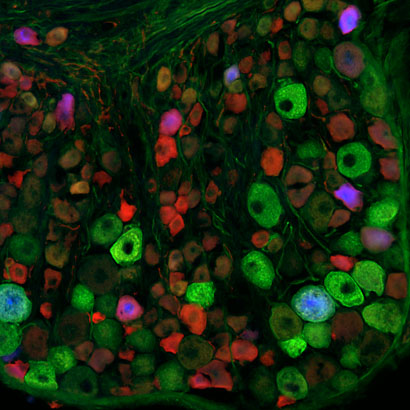 The pharmacology of the nervous system, or neuropharmacology, is a core feature of the research carried out in the Department. Neuropharmacology is an exciting field, not only because there are very few effective treatments for neurological disorders, but also because the actions of these drugs are poorly understood. Neuropharmacology is therefore a very active field of research with major public health implications.
The pharmacology of the nervous system, or neuropharmacology, is a core feature of the research carried out in the Department. Neuropharmacology is an exciting field, not only because there are very few effective treatments for neurological disorders, but also because the actions of these drugs are poorly understood. Neuropharmacology is therefore a very active field of research with major public health implications.
The research carried out by the groups of Ewan Smith and Andrew Thompson aims to address this challenge, with methods ranging from the measurement of simple drug-receptor interactions through to the using behavioural models of pain.
Ewan Smith's group tackles questions regarding the molecular bases of sensory transduction with a focus on the neurobiological substrates pain, as well as using the naked mole-rat as a model organism for studying hypoxia resistance. Andrew Thompson performs fragment-based drug discovery on expressed receptors and characterises the function, pharmacology and physiology of both established and newly identified ligands using a range of approaches.
This research uses state of the art techniques including: retrograde tracing, patch-clamp, TEVC and extracellular electrophysiology, molecular biology, fluorescence-based imaging, and animal behavioural models.

